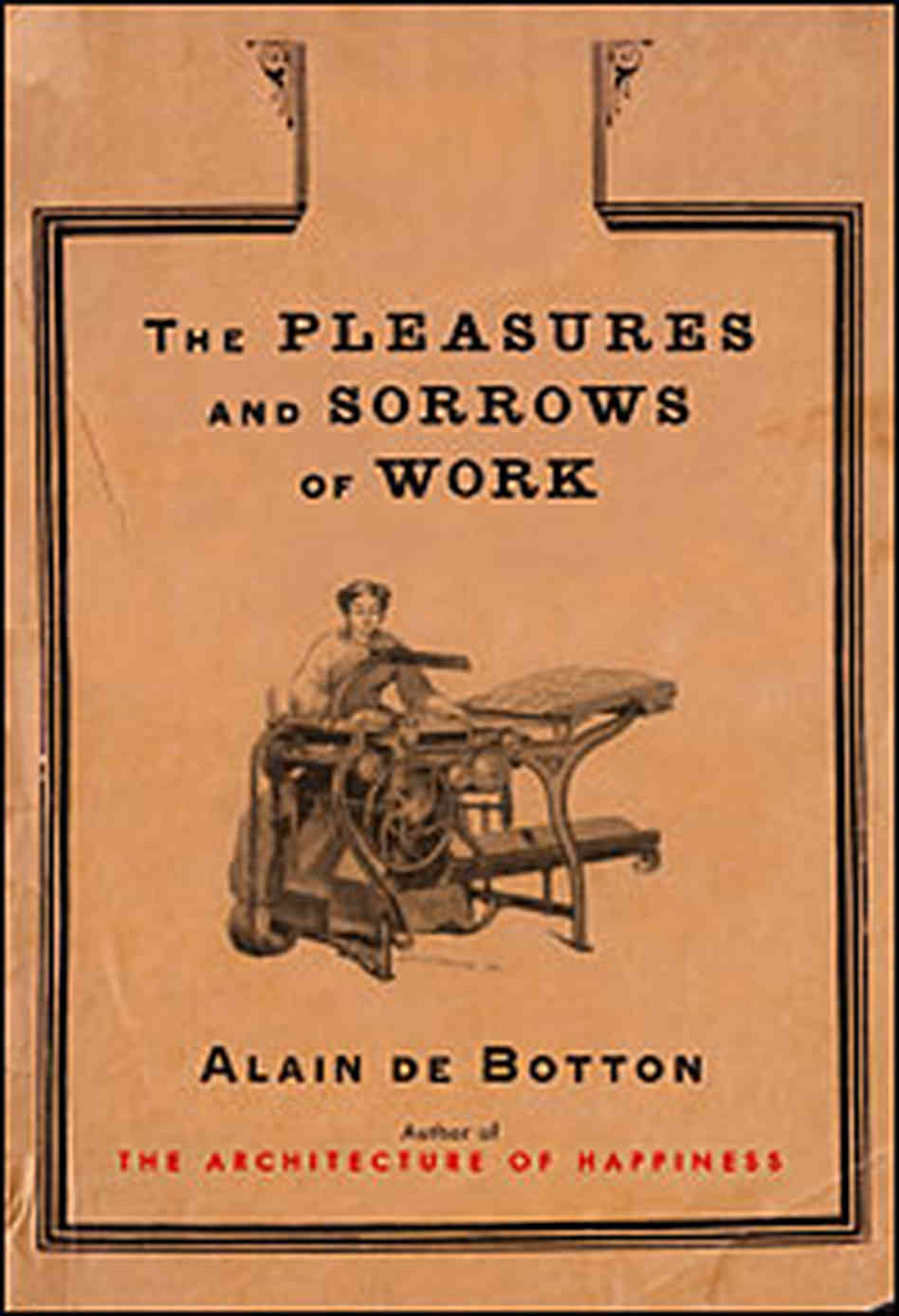The Pleasures and Sorrows of Work by Alain de Botton
 “At first I was afraid, I was petrified …” As I read the first chapter of Alain de Botton’s latest (with one eyebrow raised, if only I could) about “criminals and South Korean tourists” in the same sentence, leviathan ships headed up the lower Thames, brand new Hyundai Amica cars that will someday “kill their owners,” ship-spotters waiting in “waterproof plastic jackets and heavy soled boots … looking out at the mist-cloaked river,” I panicked that a book of de Botton’s might actually let me down for the first time ever! Thankfully, my groupie status is heartily renewed as I finished the final page this morning (just in time for book club tonight).
“At first I was afraid, I was petrified …” As I read the first chapter of Alain de Botton’s latest (with one eyebrow raised, if only I could) about “criminals and South Korean tourists” in the same sentence, leviathan ships headed up the lower Thames, brand new Hyundai Amica cars that will someday “kill their owners,” ship-spotters waiting in “waterproof plastic jackets and heavy soled boots … looking out at the mist-cloaked river,” I panicked that a book of de Botton’s might actually let me down for the first time ever! Thankfully, my groupie status is heartily renewed as I finished the final page this morning (just in time for book club tonight).
By chapter 2, I was duly reeled in (although I don’t think I can ever eat tuna again, knowing step-by-step how they end up in supermarket freezers, separated from their friends and families, brutally but efficiently clubbed so their flesh doesn’t turn dark with blood because choosy diners don’t like that, and murdered by sea-borne employees who must meet desperate minimums to feed their large families waiting at home).
No one but Alain de Botton thinks and writes like this. “Human beings, once segregated into dietary categories almost as strongly as by religious ones, into the peoples of rice or of wheat, of potatoes or of maize, now fill their stomachs with unthinking promiscuity.” That’s how he explains the massive logistics of how food from all over the world ends up on our (Western) dinner tables every night.
So most simply put, the book is a collection of essays about how de Botton perceives how and why people do what they do the thing we call work. But because de Botton has one of the most fascinating – as well as irreverently reductive, tongue-in-cheek insightful, seemingly cynical (could be mistaken), might even say sarcastic (could also be wrong) – contemporary minds out there, the end result is both awe-inspiring and downright hysterical.
De Botton covers the logistics involved with moving things from point A to B,F, and Z; the creation of a chocolate-covered biscuit (cookie in our American terms) which provides the livelihood of some 200 people in an eastern Belgium village who may never be a blip in the minds of the Blackstone Group owners in their high Manhattan offices; the traveling life of a career counsellor with a cooked-cabbage-smelling garden office whose manuscript gets rejected by 12 literary agents; the adventures of 12 Japanese TV executives who fly to French Guiana (not to be confused with Ghana, Guyana, Guinea, Guiné, Equatorial Guinea, New Guinea, or Papua New Guinea) to watch the launch of a new satellite that will provide the latest pop TV without interruption; the obsessive multiple paintings of an oak tree with meaning; his journey with his wife’s youngest cousin following the looming pylons that literally bring good (and bad) things to light from seaside Kent to central London; a day in the life of highly paid, spa-rewarded accountants and their impatient but equally regular-guy chairman boss; the hopes of an Iranian entrepreneur who gets detained at Heathrow “on the suspicion of importing bomb-making equipment” when what he’s brought are shoes that walk on water (how fitting to read this exactly on 9/11!); and finally a graveyard of airplanes out southern California’s Mojave desert that de Botton shares with incontinent giant tortoises only after bribing the foul-mouthed person-in-charge after de Botton’s eloquent soliloquy on civilization and man didn’t budge him any closer to the grounded carcasses.
It’s Saturday … forget about your own work for a delightful few hours … we should all be so lucky to get a de Botton soliloquy! For most of his groupies, his books are the next best thing.
Readers: Adult
Published: 2009
Sorry, the comment form is closed at this time.

Discussion